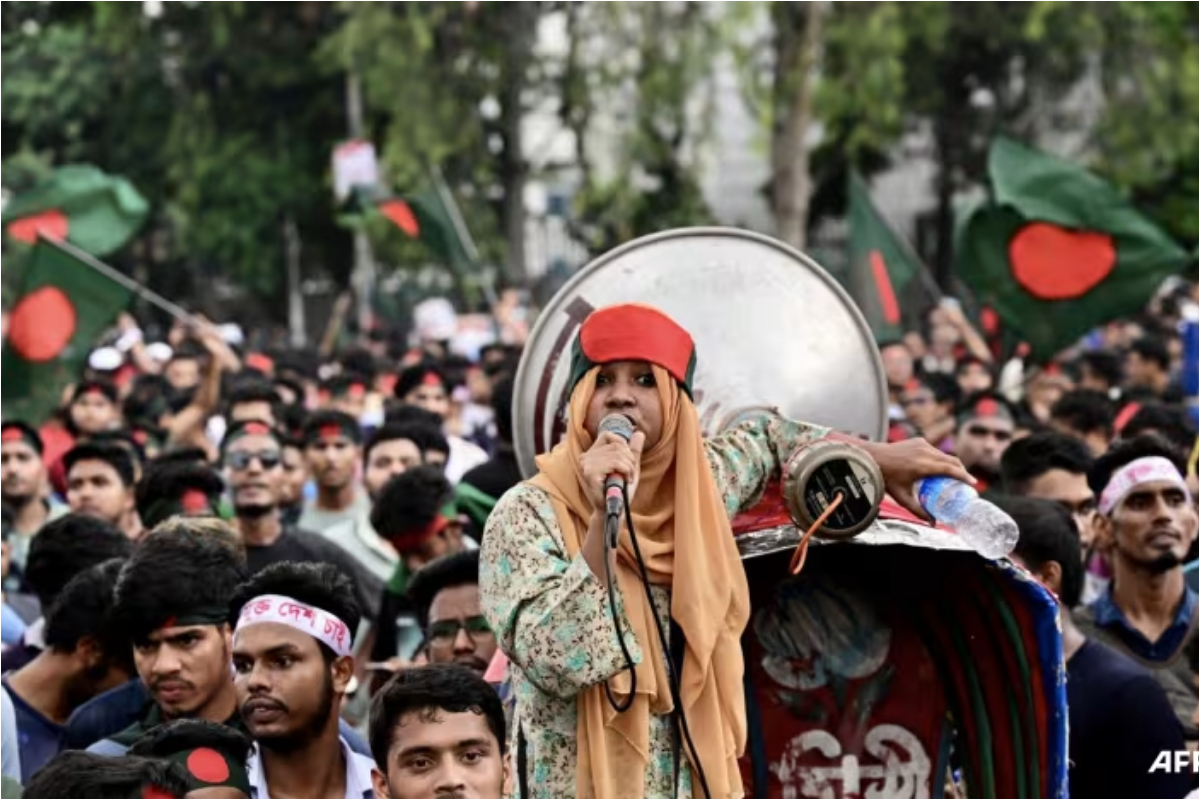Bangladesh steps up efforts to raise awareness of snake bite as cases surge
Bangladesh is addressing a rise in snake bite incidents due to fear...

Bangladesh student groups clash over job quotas, Leaving 100 injured
Police said rival students clashed in Bangladesh on Monday, leaving at least 100 people injured. Demonstrators opposing quotas for coveted government jobs battled counter-protesters loyal to the ruling party.
Police and witnesses reported that hundreds of anti-quota protesters and students supporting the ruling Awami League party clashed for hours on the Dhaka University campus. They hurled rocks, fought with sticks, and beat each other with iron rods. Witnesses also observed some carrying machetes and others throwing petrol bombs.
The quota system reserves more than half of well-paid civil service posts, totaling hundreds of thousands of government jobs, for specific groups, including children of heroes from the country’s 1971 liberation war from Pakistan.
“They clashed with sticks and threw rocks at each other,” local police station chief Mostajirur Rahman told AFP.
Police Inspector Masud Mia reported that “around 100 students, including women,” were injured and had been taken to the hospital. Mia added, “More people are coming.”
Earlier this month, students launched protests demanding a merit-based system. Despite Bangladesh’s top court suspending the quota scheme, the protests have continued. Anti-quota protesters have blamed the ruling party students for the violence.
“They attacked our peaceful procession with rods, sticks and rocks,” Nahid Islam, the national coordinator of the anti-quota protests, told AFP.
“They beat our female protesters. At least 150 students were injured including 30 women, and conditions of 20 students are serious.”
Critics argue that the system benefits children of pro-government groups who support Prime Minister Sheikh Hasina. Hasina, 76, secured her fourth consecutive general election victory in January, in a vote without genuine opposition parties that witnessed a significant crackdown against her political opponents, who boycotted the poll. Injured student Shahinur Shumi, 26, stated that the protesters were taken by surprise.
“We were holding our procession peacefully,” she said from her hospital bed at Dhaka Medical Hospital.
“Suddenly, the Chhatra League (the ruling party student wing) attacked us with sticks, machetes, iron rods, and bricks.”
Police reported that hundreds of students from several private universities, shouting anti-quota slogans, joined the protests in Dhaka, halting traffic near the US embassy for more than four hours.
“Some 200 students squatted and stood on the road,” deputy police commissioner Hasanuzzaman Molla told the news.
Thousands of students also marched in a dozen universities overnight Sunday into the early hours of Monday morning, protesting against what they said were disparaging comments by Hasina. Protesters said she compared them to collaborators of the Pakistani army during Bangladesh’s war of independence.
“This is unacceptable,” a female student from Dhaka University said, asking not to be named for fear of reprisal.
“We want a reform of the quota system so that meritorious students can get a fair chance.”
Anti-quota students reported that violence also erupted during protests in Bangladesh’s second city Chittagong late on Sunday. Organizer Khan Talat Mahmud Rafy said two fellow protesters were injured.
“Dozens of Chhatra League activists attacked one of our processions,” Rafy said.
Students are demanding that only quotas supporting ethnic minorities and disabled people—amounting to six percent of jobs—should remain. Bangladesh, one of the world’s poorest countries when it gained independence in 1971, has grown an average of more than six percent each year since 2009. However, much of that growth has relied on the mostly female factory workforce driving its garment export industry, and economists say there is an acute crisis of jobs for millions of university students.
Catch all the Business News, Breaking News Event and Latest News Updates on The BOL News
Download The BOL News App to get the Daily News Update & Live News.